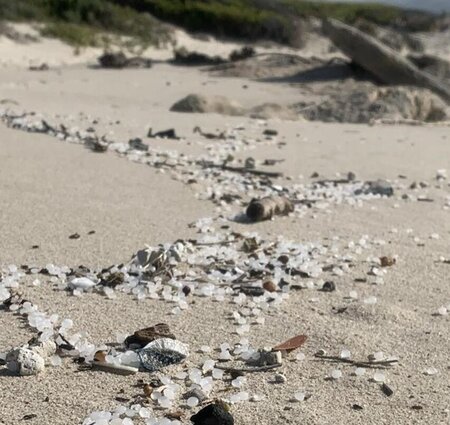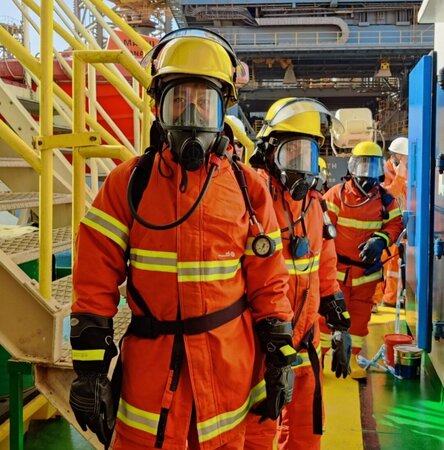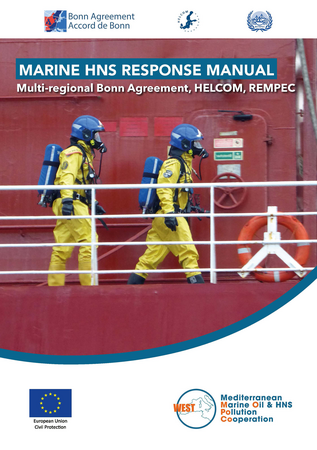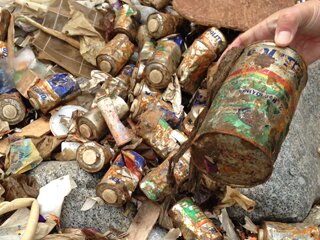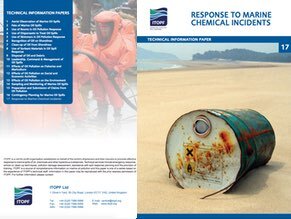Documents & Guides
Explore a variety of topics about marine spills, response and compensation matters in the pages below.
Each topic and area of interest provides access to more detailed documentation that is freely downloadable.
This includes our 18 Technical Information Papers which are fully illustrated with photos and diagrams and are available in several languages.
Alternative Fuels
What are the emerging alternative fuels and their associated risks, hazards, damages and liabilities?
Compensation for Ship-source Marine Oil Spills
What legal arrangements and sources of compensation are available for a spill from a ship?
Disposal
What planning and waste management systems need to be put in place to reduce the volume of oily waste for treatment or disposal?
HNS
What are the specific chemical response strategies for responding to a Hazardous and Noxious Substance spill, and what are the potential effects on human and marine life?
Contingency & Response Planning
What information is needed for an effective oil spill contingency plan? How can aerial observation and protective strategies assist with response operations?
Economic Effects
Which industries might suffer temporary economic losses and loss of market confidence?
Fate of Oil Spills
What happens to oil in the marine environment over time when spilled at sea? How do different factors such as volume and physical and chemical properties affect the fate of oil spills?
Explore the Resources
Balancing the plastic see-saw
Globally, plastics are a widespread consumer product and, due to inappropriate disposal and accidental losses, are now found ubiquitously in the marine environment. Recently, however, there has been a growing interest in plastic pellets, or nurdles, following a spate of losses from shipping vessels during transshipment. Over the last five years, ITOPF has been heavily involved in five spills of plastic pellets, including incidents in Sri Lanka, South Africa and Spain.
Alternative fuels: a shift in the response paradigm?
The decarbonisation of shipping has become an increasingly prominent topic, and this is due to growing regulatory pressure, a changing climate of public opinion and investors demanding a faster energy transition as well as the industry’s increased focus on sustainability.
Marine HNS Response Manual
The Project to create the Marine HNS Response Manual was implemented through an inter-regional effort, including the participation of the Western Mediterranean Region Marine Oil and HNS Pollution Cooperation (West MOPoCo), the Regional Marine Pollution Emergency Response Centre for the Mediterranean Sea (REMPEC), the Bonn Agreement for the Greater North Sea and its approaches and the Helsinki Commission (HELCOM) for the Baltic Sea. The project benefits from the technical support and expertise of expert partner institutions such as Cedre, ISPRA and ITOPF.
Are HNS spills more dangerous than oil spills? (2009)
While the hazards and consequences of oil spills are well known, little information exists for chemical spills. Words such as ‘carcinogenic’, ‘mutagenic’, and ‘neurotoxic’, which appear on shipping documents, are readily misinterpreted and extrapolated to worst-case scenarios causing public apprehension and mistrust. This paper attempts to answer the question ‘Are HNS Spills More Dangerous Than Oil Spills?
TIP 17: Response to marine chemical incidents
This paper provides an introduction to the issues involved in responding to chemical spills and addresses the range of hazards present, the behaviour of chemicals when spilt at sea and briefly reviews available response options.
Categories: HNS, Technical Information Paper (TIPS)

